“Portrait of a Lady on Fire” (Portrait de la jeune fille en feu) is not only one of the most celebrated lesbian films of the 21st century, but also a masterclass in female gaze, artistic integrity, and restrained passion. Set in 18th-century Brittany, this French period drama directed by Céline Sciamma weaves together themes of memory, identity, artistic authorship, and queer love in a patriarchal world that barely acknowledges women’s desires.
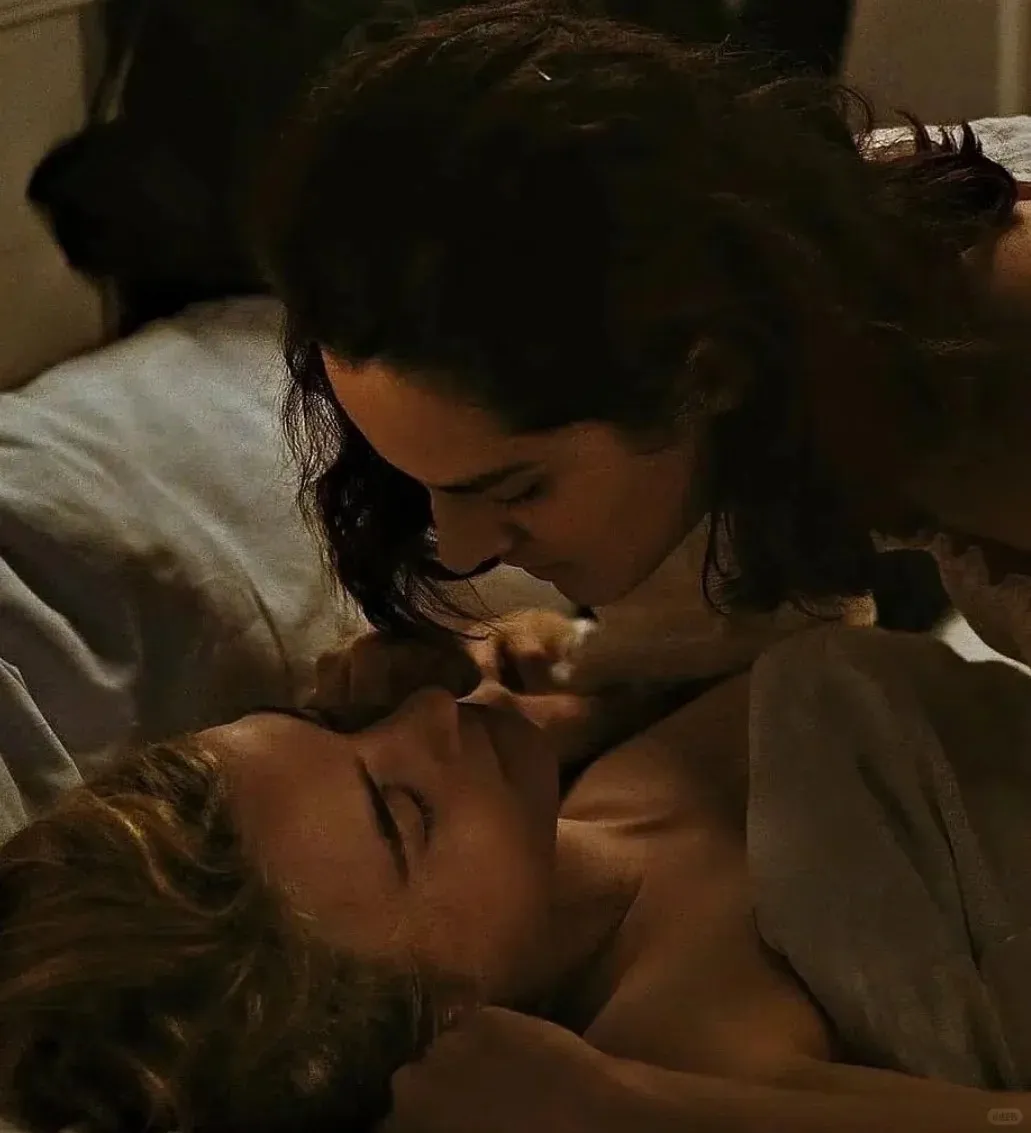
In 1770 France, young painter Marianne is commissioned to create a wedding portrait of Héloïse, a reluctant bride-to-be who has just left the convent. The twist? Marianne must complete the painting in secret, under the guise of being a walking companion. As the two women grow closer, observation turns into connection, and connection into an undeniable love. Their affair blossoms in a temporary utopia devoid of men, but reality encroaches all too soon.
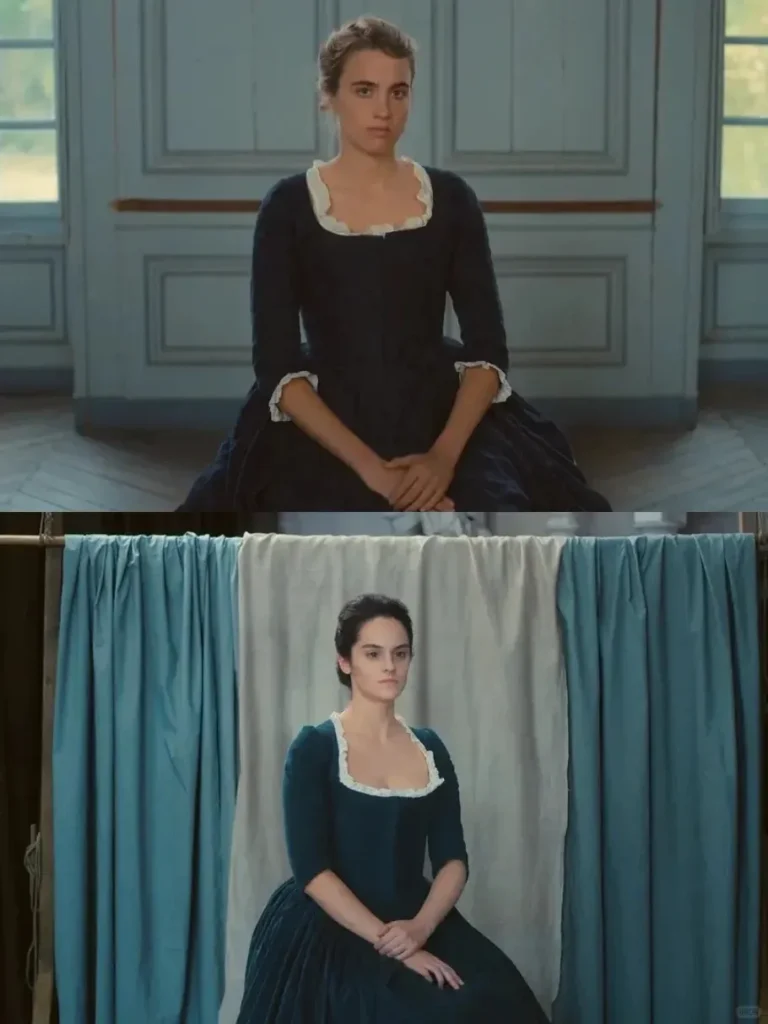
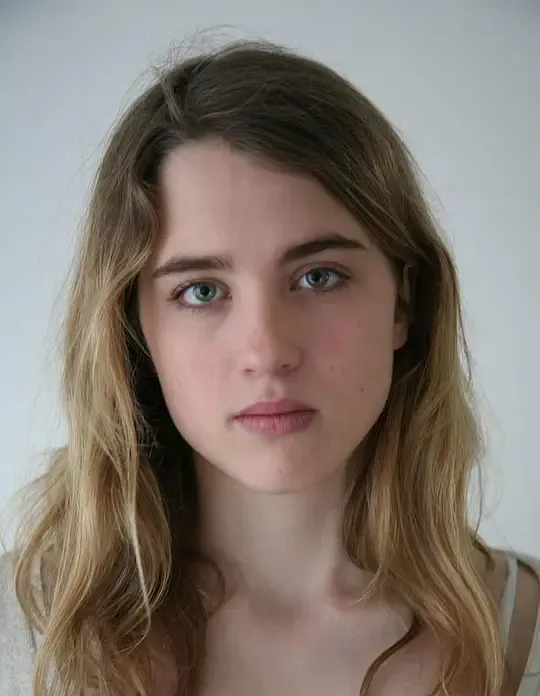
A defiant noblewoman wrestling with duty and longing.
Adèle Haenel
Haenel, an acclaimed French actress known for her role in Love at First Fight, delivers a performance that is both magnetic and heartbreakingly restrained. She brings layers of vulnerability and steel to Héloïse.
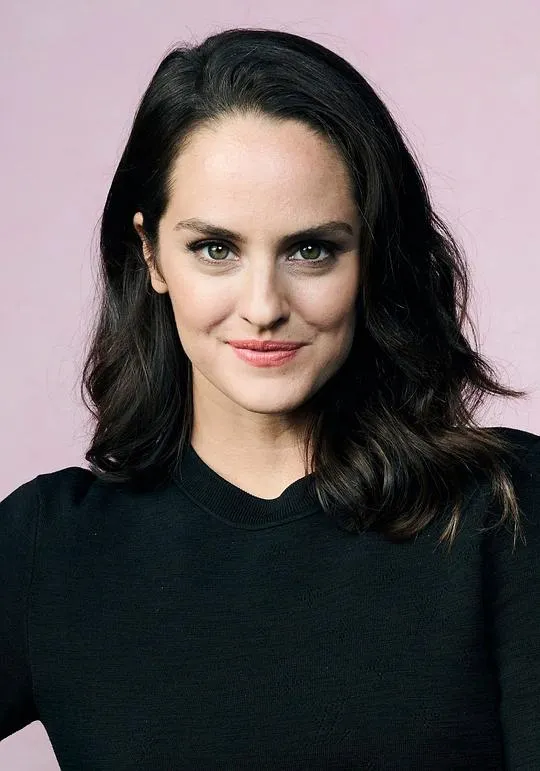
A passionate and introspective artist trying to balance her assignment with her growing love.
Noémie Merlant
Merlant is mesmerizing as the viewer’s proxy. Her subtle shifts in emotion and deepening affection are expressed with the precision of a brushstroke. She later starred in Tár and directed her own queer-themed film, Mi iubita mon amour.
Director
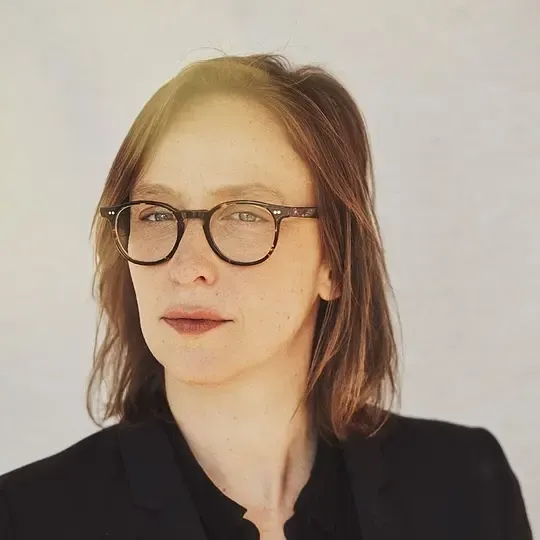
Céline Sciamma
Céline Sciamma is one of the most influential voices in contemporary queer cinema. Known for Tomboy (2011) and Girlhood (2014), she consistently explores gender, identity, and desire through a tender and incisive lens. In Portrait of a Lady on Fire, Sciamma creates a radically female-centered narrative—stripped of the male gaze and brimming with emotional nuance. As both writer and director, she crafts a love story that feels intimate, timeless, and politically urgent. Her precise visual language, use of silence, and refusal to dramatize queer pain mark the film as a landmark in lesbian filmmaking and feminist storytelling.
BEST SCENES
📍The scene where they read the story of Orpheus and debate its meaning
📍The moment Marianne secretly draws Héloïse sleeping, later caught in the act
📍The campfire scene where Héloïse’s dress catches fire, visually realizing the film’s title
📍The final music hall scene, where Héloïse breaks down to Vivaldi
Portrait of a Lady on Fire Review
Review
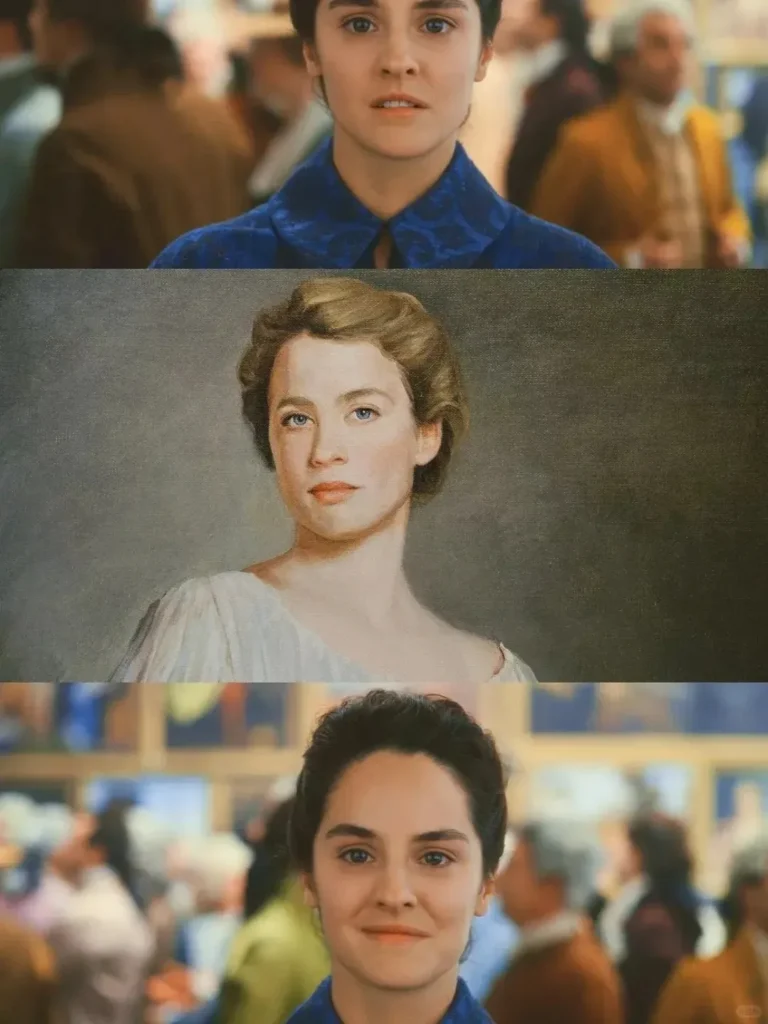
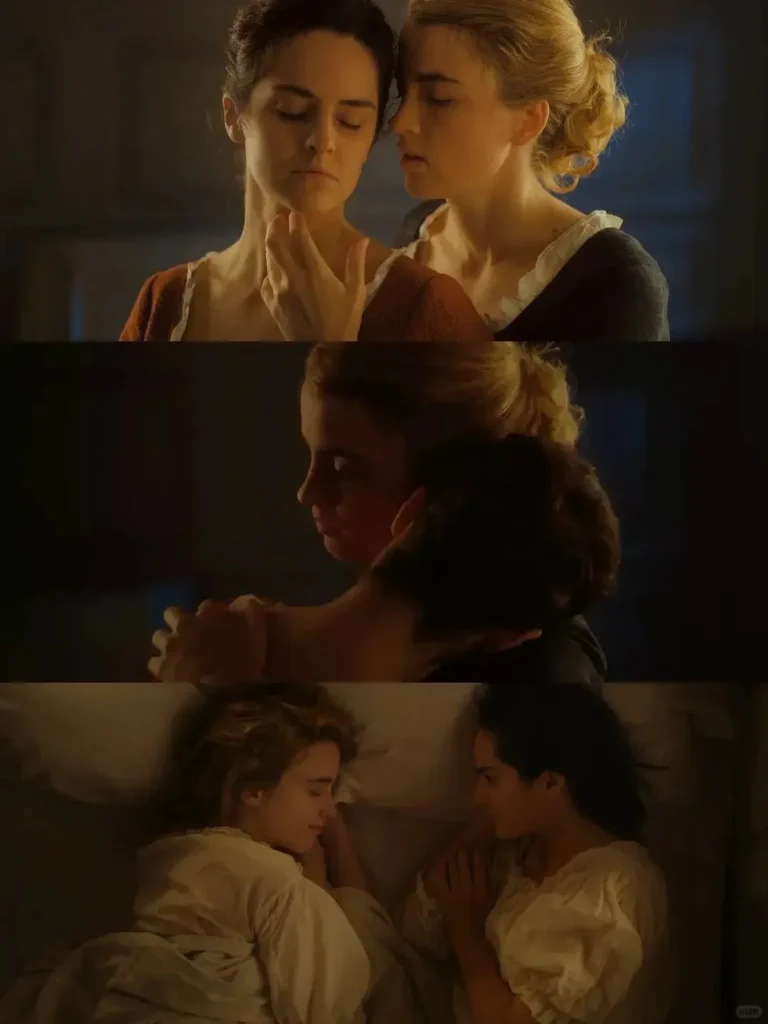
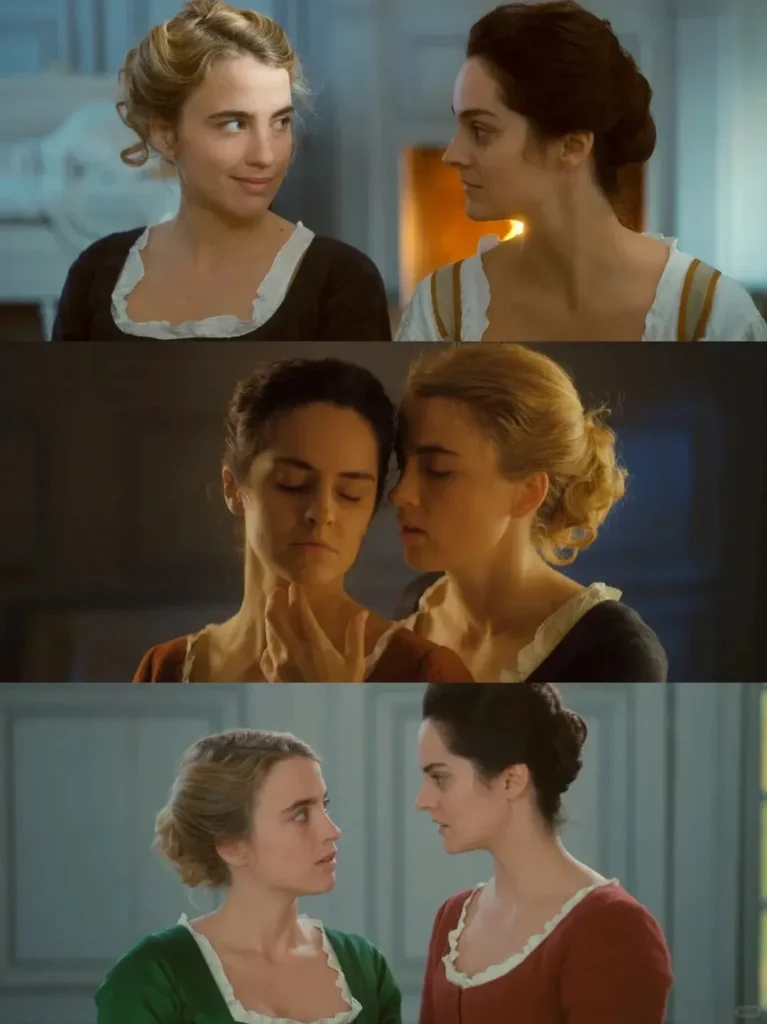
Story ⭐⭐⭐⭐⭐ (5/5)
A rare narrative that centers not just on a lesbian love story, but on what it means to see and be seen. The Orpheus and Eurydice myth woven through the plot isn’t just a metaphor; it’s the soul of the film. Sciamma uses it to explore the difference between memory and possession, choice and fate.
Acting ⭐⭐⭐⭐⭐ (5/5)
Noémie Merlant and Adèle Haenel give performances so quiet yet so emotionally rich that entire scenes are carried on nothing more than a glance. Haenel in particular commands the screen, conveying inner turmoil, desire, defiance, and sorrow with striking authenticity.
Chemistry ⭐⭐⭐⭐⭐ (5/5)
The sexual tension and emotional build-up are excruciatingly beautiful. Every stolen look, every small touch, every line of dialogue brims with unspoken intimacy. The film waits 90 minutes before the first kiss, and yet it’s already ablaze with feeling.
Production ⭐⭐⭐⭐⭐ (5/5)
Claire Mathon’s cinematography turns every frame into a living oil painting. The sound design is minimal—no soundtrack, no score—allowing the crackle of fire, the rustle of skirts, and the breath of longing to speak volumes. The costume and set design perfectly immerse viewers in a world both isolated and intensely alive.
Ending ⭐⭐⭐⭐⭐ (5/5)
The final scene, set to Vivaldi’s Four Seasons, is one of the greatest endings in cinema history. It shows the cost of memory and the eternal echo of lost love. It’s devastating and transcendent.
💬 My Take
This film altered the way I see queer cinema. For once, here was a lesbian story not framed by tragedy or fetishism, but by mutual respect, artistic connection, and emotional truth. Watching Marianne and Héloïse build a love that couldn’t outlive its moment but could survive in memory—etched in paint, in pages, and in music—was profoundly moving. The lack of male characters allows the narrative to breathe in a rare feminine space. It’s not just a romance; it’s a meditation on art, grief, gaze, and gender.
Portrait of a Lady on Fire Information
🏆 Awards & Nominations
2019 Cannes Film Festival
Best Screenplay — Winner
Queer Palm — Winner
Palme d’Or — Official Competition (Nominee)
2020 Golden Globe Awards
Best Motion Picture – Foreign Language — Nominee
2020 BAFTA Awards
Best Film Not in the English Language — Nominee
2020 César Awards (France)
Best Cinematography (Claire Mathon) — Winner
Best Film, Best Director, Best Actress, Best Original Music — Multiple Nominations
2019 European Film Awards
Best Cinematography — Winner
Best Screenwriter (Céline Sciamma) — Nominee
